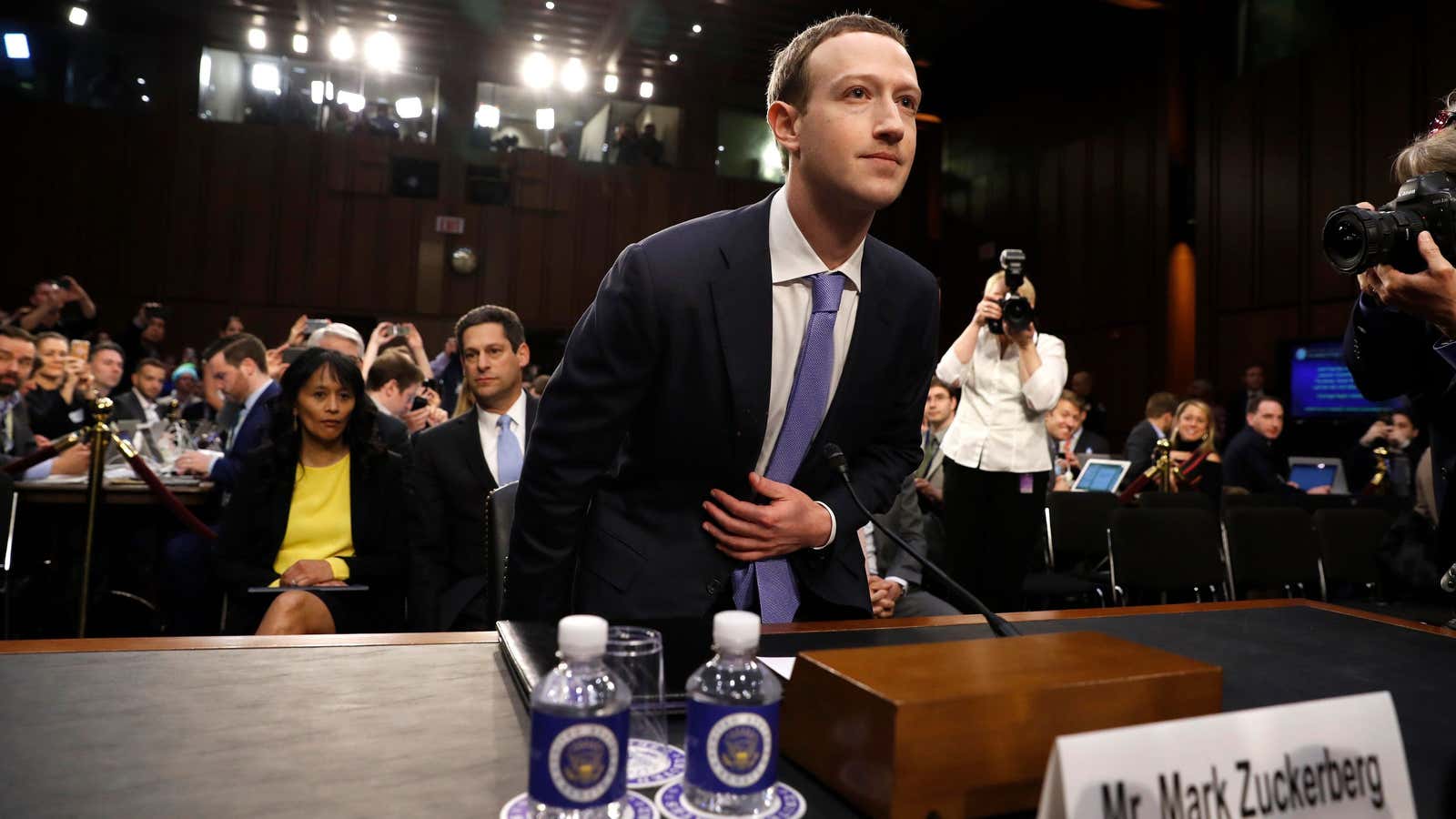Facebook is trying to pick up the pieces in wake of the massive Cambridge Analytica voter-manipulation scandal.
“2018 is an incredibly important year for elections not just with the US midterms, but around the world. There are important elections in India, in Brazil, in Mexico, in Pakistan, and in Hungary,” Facebook CEO Mark Zuckerberg said while testifying in front of US Congress for the first time on April 10. “We want to make sure we do everything we can to protect the integrity of those elections.”
In less than a year, when more than 133 million first-time voters are expected to go to the polls in India—the world’s largest democracy—Facebook will have more of its defenses in order. The company has new artificial intelligence tools to identify fake accounts, and plans to hire 20,000 people to work on security and content review by the end of this year. It also promises to verify every entity running political ads.
“I have more confidence we’ll get this right because since the 2016 election, there have been several important elections around the world where we’ve had a better track record,” Zuckerberg said, referring to elections in France, Germany, and the special senate race in Alabama last year. “Between those three elections, we were able to proactively remove tens of thousands of accounts before they could contribute significant harm.”
But bad actors are also getting more sophisticated. “This is an arms race,” Zuckerberg said, referring to Russia. “They are going to keep on getting better at this and we need to invest at getting better at this, too.” One example Zuckerberg offered to combat advertisers abusing the platform is to mail codes to physical addresses on file if it detects anomalies like if a Russian source provides a US address that seems unlikely. Without the code, advertisers won’t be able to publish on Facebook.
Catching an advertising lying about its location is one thing, but Facebook also needs a game plan for weeding out other types of misinformation. For instance, India’s ruling party, the Bharatiya Janata Party, has been accused of spreading fake news.
Still, these measures are significant for India because during the 2014 elections, social media emerged as a vital campaigning tool, and there’s no reason 2019 will be any different, especially considering India makes up the largest audience for both Facebook and Whatsapp. By next year, over 520 million Indians will be online, with almost half expected to be on Facebook.
Apart from plugging the gaping holes on the online platform, Facebook had previously tried to tackle India’s fake news issue with an offline campaign. The social media giant took out ads across major newspapers nationwide offering tips on how to spot fake news. The company is also studying the role of social media in elections.
